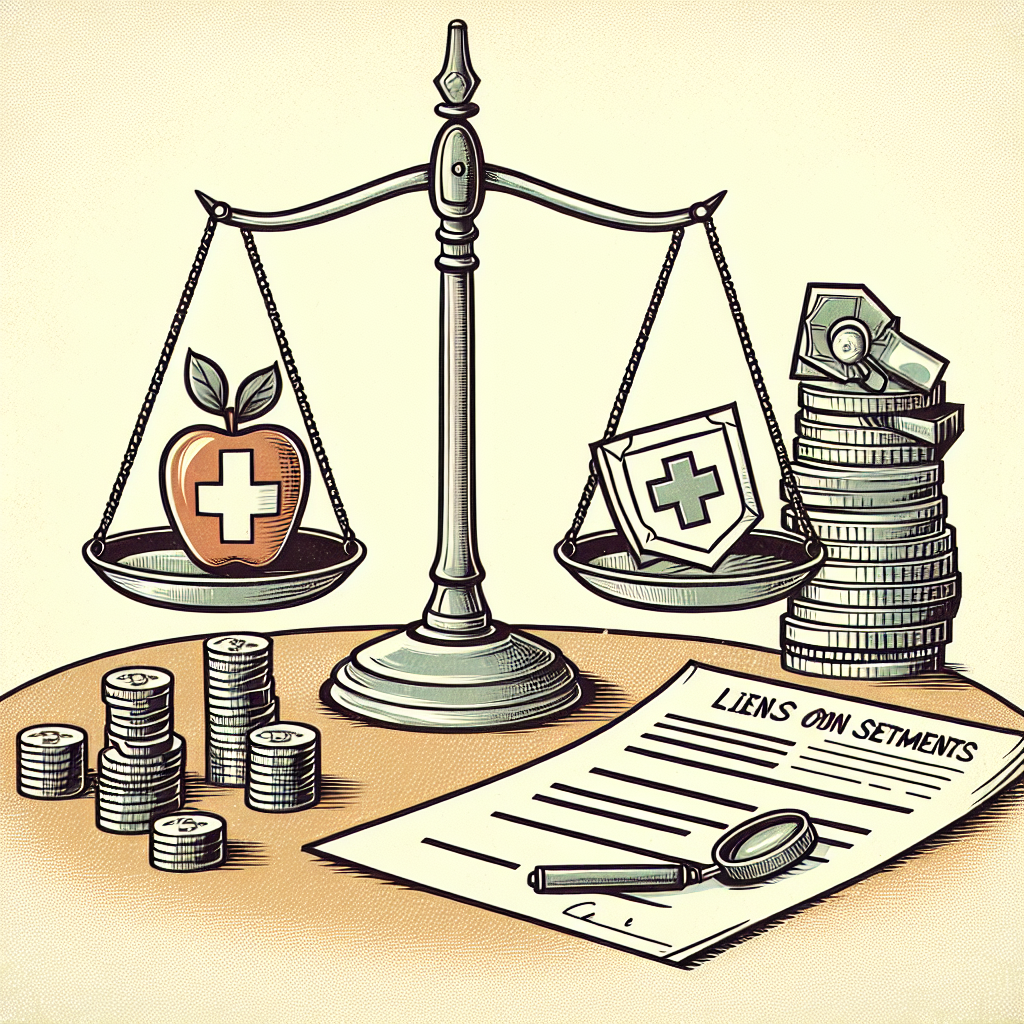Filed under Health Insurance on
Understanding Health Insurance Liens on Settlements

Health insurance liens on settlements can be a complex element of personal injury cases. While they may feel overwhelming, understanding these liens is crucial for anyone navigating the legal and healthcare landscapes. Not only does comprehension illuminate how these mechanisms influence settlements, but it also prepares individuals for securing the best outcomes in compensation. Let's delve into this essential subject, unraveling the role and implications of health insurance liens in settlement scenarios.
What Are Health Insurance Liens?
A health insurance lien is a legal claim by your insurance provider to recover the costs of medical expenses from an injury that was paid on your behalf, should you receive a settlement. Essentially, if you receive a financial resolution from a personal injury claim, the insurer is entitled to be reimbursed for medical costs they covered related to that claim. This claim, or lien, ensures that insurance companies are not left bearing the financial burden that's rightly the responsibility of the at-fault party.
Why Do Health Insurance Liens on Settlements Exist?
The rationale behind health insurance liens lies in the principle of subrogation, which permits insurers to step into the shoes of their insured to recover costs from the party responsible for causing the harm. This process prevents double recovery, where a claimant might otherwise benefit from both an insurer covering healthcare costs and a settlement covering those same expenses. Moreover, it aids in keeping insurance premiums in check, as it discourages unnecessary payouts by insurers.
Types of Health Insurance Liens
Private Health Insurance Liens
Private health insurers, such as those under plans from employers or purchased individually, often work with subrogation clauses that may necessitate repayment from settlements. Such insurers frequently employ third-party administrators to manage and enforce these liens, ensuring the dues are collected accurately and efficiently.
Medicare and Medicaid Liens
Medicare and Medicaid require mandatory repayment when a settlement is reached. The federal government mandates that these programs must be reimbursed to prevent taxpayer funds from shouldering costs that private parties ought to cover. Failing to satisfy these liens can result in penalties for both the recipient and their attorney, making compliance critical.
ERISA Liens
Under the Employee Retirement Income Security Act (ERISA), certain employer-based plans can also place liens on settlements. These liens often bear more weight, given their federal jurisdiction and the priority they hold over other claims.
Negotiating Health Insurance Liens
Negotiating health insurance liens effectively can significantly impact the net recovery from a settlement. Familiarity with the intricacies of these liens and adept negotiation skills are essential in optimizing outcomes. Below are strategic approaches to consider:
Understanding the Lien's Validity
First, verify the legitimacy of the lien. Assess whether the insurance policy explicitly grants subrogation rights and validates the expenses claimed by the insurer. Incorrect or unsupported claims should be contested immediately.
Engaging in Lien Reduction
It is possible to negotiate lien reductions, particularly when settlements do not cover the full extent of damages and expenses. Insurers may agree to a reduced repayment to expedite the process and avoid litigation.
Working with Legal Counsel
Attorneys specializing in personal injury law can be pivotal in negotiating with insurance firms. Their familiarity with the process and leverage in discussions can lead to more favorable lien terms. Attorneys routinely deal with health insurance liens on settlements, and their experience can save claimants time and money.
Health Insurance Liens: Legal Considerations and Consumer Rights
Understanding your legal rights and the obligations of insurers in the process is vital. Most jurisdictions require clear communication from insurers regarding lien claims, providing claimants with notice and the opportunity to contest any discrepancies.
Legal Remedies for Disputes
If disputes about the validity or amount of the lien arise, claimants may seek resolution via arbitration or litigation, depending on the contract terms and local laws. Legal action should only be endeavored as a last resort, given its potential cost and duration.
Consumer Advocacy and Transparency
Transparency in the process is crucial. Seeking assistance from consumer advocacy groups can provide additional support and resources when dealing with health insurance liens on settlements. These organizations can help decipher complex insurance terms and practices, ensuring claimants are not unjustly penalized.
The Impact of Health Insurance Liens on Settlement Amounts
Health insurance liens invariably reduce the amount a claimant can retain from a settlement. However, understanding their impact helps in strategizing future legal actions and financial planning. Assess each settlement offer by considering the lien and exploring any potential reductions that might enhance financial recovery.
Effect on Financial Planning
With a grasp of anticipated lien amounts, claimants can better forecast the actual gains from settlements. Effective planning, incorporating lien payouts from the outset, aids in setting realistic expectations and promoting informed decisions regarding settlements and investments.
Industry Trends and Future Outlook
In recent years, the realm of health insurance liens has evolved, with emerging trends suggesting potential shifts in how these mechanisms are approached. As litigation costs rise and healthcare continues experiencing policy changes, insurers are continuously adapting their lien strategies to better serve economic interests and compliance requirements.
Technological Advancements in Lien Management
Advancements in technology have streamlined the process of identifying, placing, and negotiating health insurance liens on settlements. Automated systems for tracking and managing liens improve accuracy and efficiency, benefiting both insurers and claimants.
Increased Emphasis on Transparency
With heightened scrutiny from both public and governmental bodies, the demand for transparency in healthcare costs and insurance practices has grown. Insurers are being encouraged to provide clearer information upfront regarding potential lien implications, aiding claimants' understanding and decision-making processes.
Conclusion
An awareness of health insurance liens on settlements provides a critical advantage in navigating personal injury cases. Knowledge empowers claimants to negotiate effectively, reduce financial losses, and advocate for themselves in complex scenarios. Armed with this information, individuals can embark on their legal journeys more confidently, knowing the strategies and implications of these legal mechanisms.





